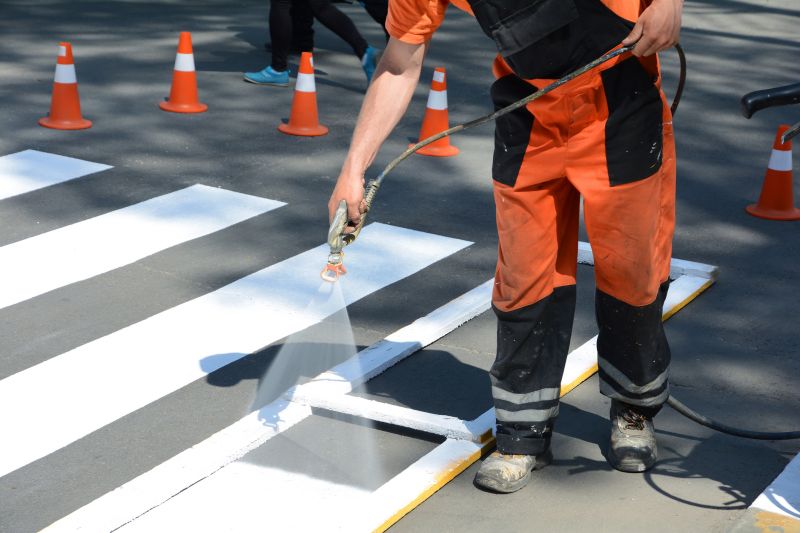Top-Rated Products For Industrial Paint Strippings Applications
Compare leading products designed to handle tough paint removal tasks with durability and precision in industrial settings.
 Industrial paint stripping is a specialized process that involves removing old or unwanted paint coatings from various surfaces, often in preparation for repainting or surface restoration. The range of products available for this task is extensive, encompassing tools and materials designed to handle different types of surfaces, paint layers, and project scopes. From chemical strippers to abrasive tools, each product type offers unique advantages suited to specific applications. Selecting the appropriate product depends on factors such as surface material, paint thickness, safety considerations, and project complexity.
Industrial paint stripping is a specialized process that involves removing old or unwanted paint coatings from various surfaces, often in preparation for repainting or surface restoration. The range of products available for this task is extensive, encompassing tools and materials designed to handle different types of surfaces, paint layers, and project scopes. From chemical strippers to abrasive tools, each product type offers unique advantages suited to specific applications. Selecting the appropriate product depends on factors such as surface material, paint thickness, safety considerations, and project complexity.
Top Overall Option
Industrial Chemical Paint Stripper
An industrial-grade chemical paint stripper offers a versatile solution for removing multiple layers of paint from various surfaces. It is designed to penetrate and loosen paint efficiently, minimizing manual effort and surface damage. Ideal for large-scale projects, this product can be applied with brushes or rollers and often requires minimal scraping afterward. Proper safety precautions should be followed to handle chemicals safely and ensure effective removal.
Types of Products For Industrial Paint Strippings
Chemical Paint Strippers
Gel, liquid, or paste formulations designed to dissolve paint layers for easy removal.
Abrasive Scrapers
Manual tools like putty knives and scrapers for physically removing paint.
Power Sanders
Electric tools equipped with abrasive pads or discs for rapid paint removal.
Heat Guns
Devices that soften paint with controlled heat, facilitating easier scraping.
Wire Brushes
Manual or power-operated brushes for scrubbing off paint from rough surfaces.
Plastic Scrapers
Gentle scraping tools suitable for delicate surfaces or detailed work.
Sandblasting Equipment
High-pressure abrasive systems for large-scale paint stripping on durable surfaces.
Chemical Gel Removers
Thick gel formulations that cling to surfaces for targeted stripping.
Oscillating Multi-Tools
Versatile power tools with attachments for sanding, scraping, and grinding.
Industrial Degreasers
Products that prepare surfaces by removing grease before paint stripping.
Abrasive Discs
Interchangeable discs for use with angle grinders or sanders.
Chemical Paint Removers with Neutralizers
Products that include neutralizers to stop chemical action after removal.
Steam Paint Removers
Devices that use steam to soften paint for easier removal.
Infrared Paint Removers
Tools that use infrared heat to soften paint with precision.
Eco-Friendly Paint Strippers
Less caustic chemical options for safer handling and disposal.
Abrasive Blasting Media
Materials like baking soda or mineral abrasives for gentle or aggressive stripping.
Popular Choices
Widely used for their ease of application and effectiveness on various surfaces.
Popular for rapid removal on large or flat surfaces with minimal chemical use.
Favored for their ability to soften paint without chemicals, suitable for detailed work.
Common for manual removal, especially on rusted or textured surfaces.
Versatile for use with grinders and sanders across various projects.
Often used to prepare surfaces before stripping or repainting.
Effective for heavy-duty stripping on durable materials.
Convenient for vertical surfaces and detailed areas.
Popular for their multi-functionality and precision in tight spots.
Growing in popularity for controlled, chemical-free paint removal.
Valued for their environmentally friendly approach and effectiveness.
Chosen for their ability to remove paint quickly from large surfaces.
Chemical paint strippers are commonly used for their ability to dissolve or loosen paint layers, making removal easier without extensive manual effort. These products often come in gel, liquid, or paste forms, allowing for targeted application on vertical or intricate surfaces. Mechanical options include scrapers, wire brushes, and power tools equipped with abrasive pads or discs, which physically remove paint through abrasion. Heat guns are also popular, providing controlled heat to soften paint for easier scraping, especially on large flat surfaces.
For projects involving delicate surfaces or detailed work, products like plastic scrapers or soft brushes are recommended to avoid damage. Heavy-duty options such as industrial-grade grinders or sanders are suitable for large-scale stripping tasks, especially when dealing with thick or multiple layers of paint. It is essential to consider the safety aspects of each product, including the use of protective gear and proper ventilation, to ensure safe and effective paint removal. Understanding the surface material, paint type, and project requirements will help in choosing the most appropriate tools and chemicals for efficient results.
Key Buying Considerations
- Surface material compatibility to prevent damage during removal.
- Type and thickness of paint layers to determine the appropriate method.
- Safety requirements, including protective gear and ventilation needs.
- Project scale to select suitable tools and chemicals for efficiency.
- Ease of use and handling, especially for manual tools.
- Chemical safety and disposal regulations for chemical strippers.
- Environmental conditions, such as humidity and temperature, affecting product performance.
- Surface accessibility and detailed areas requiring precision tools.
- Cost considerations for equipment, chemicals, and safety gear.
- Compatibility with existing tools or equipment on hand.
- Time constraints and project deadlines influencing method choice.
- Potential surface preparation needed before paint removal.
- Long-term maintenance and surface restoration post-removal.
- Availability of replacement parts or refills for tools and chemicals.
- User reviews and product reliability for informed decision-making.
